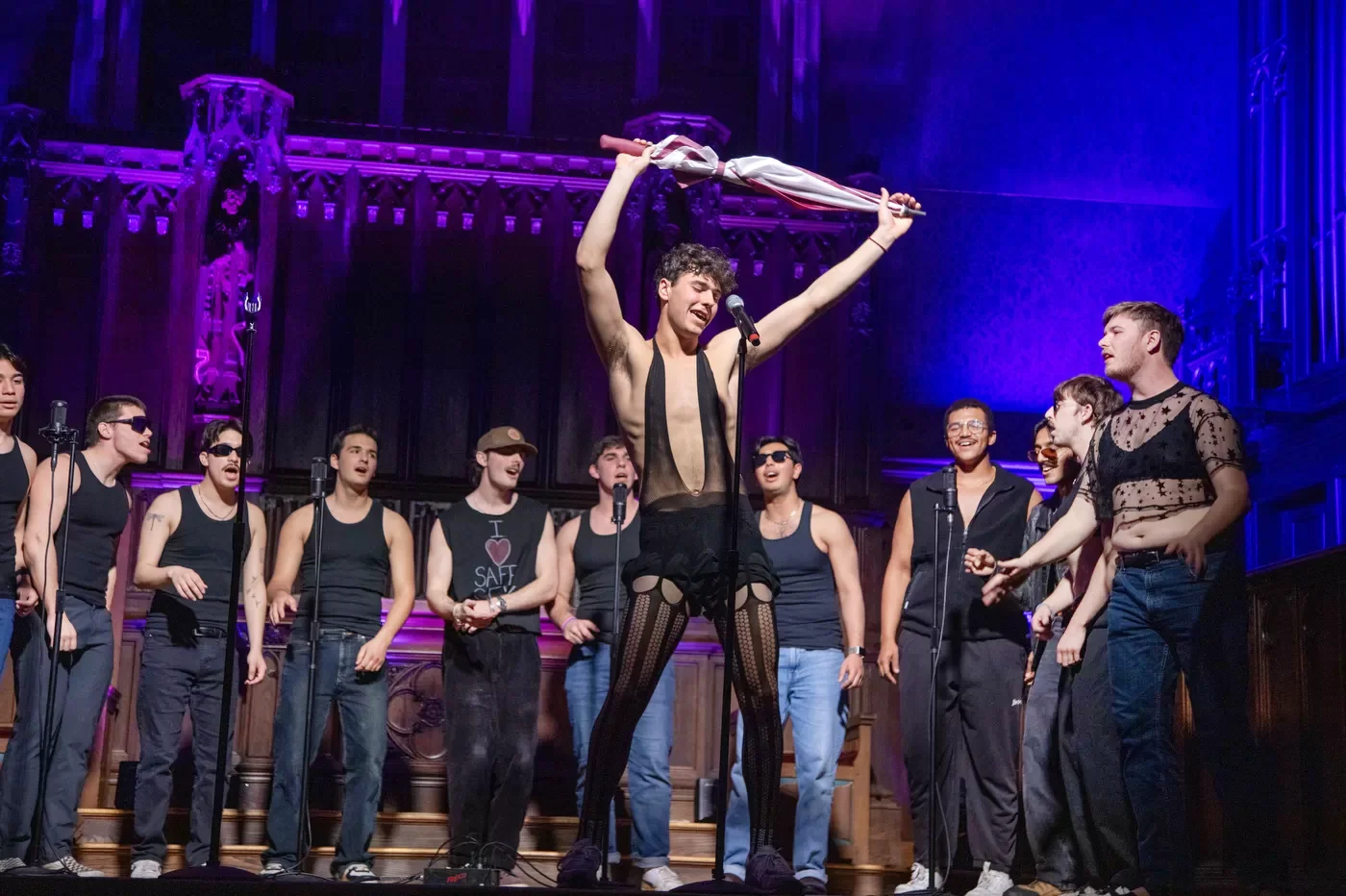
Four photographers share ‘Points of View’ on nature in Maine
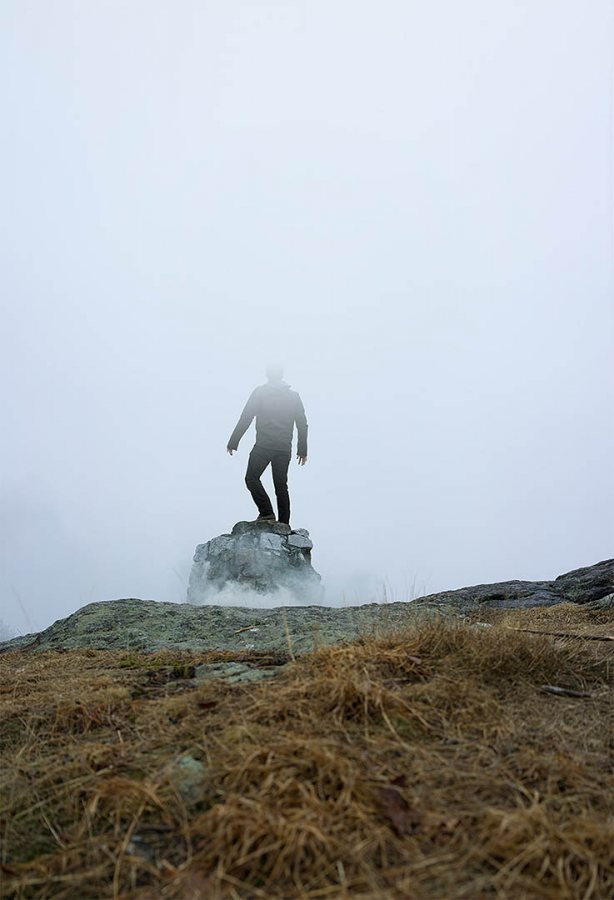
“Fade” is a 2015 photograph by Jay Gould, on display in the Bates College Museum of Art exhibition “Points of View.” Courtesy of the artist.
Viewing elements of the Maine landscape from different levels of scale, very distant to very near, four photographers explore the boundaries between human activity and the natural world in a Bates College Museum of Art exhibition this summer.
Points of View: New and Recent Photographs by Jay Gould, Gary Green, David Maisel and Shoshannah White opens with a museum reception at 7 p.m. Friday, June 12. Opening at the same time are The Painter of Maine: Photographs of Marsden Hartley and Maine Collected: Contemporary Selections from the Permanent Collection.
Points of View will be shown through Oct. 24. Bates museum exhibitions and events are open to the public at no cost. Museum hours are 10 a.m. to 5 p.m. Monday through Saturday. The museum is located in the Olin Arts Center, 75 Russell St.
For more information, please contact 207-786-6158 or museum @bates.edu, or visit bates.edu/museum.
Points of View comprises new and recent photography by Jay Gould, of Baltimore; Gary Green, of Waterville, Maine; David Maisel, of Marin, California; and Shoshannah White, of Portland, Maine.
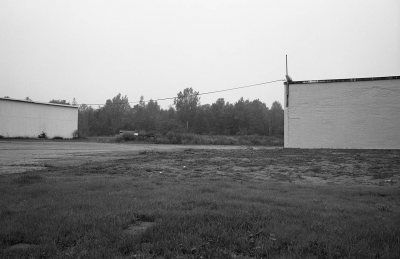
This untitled work from 2010, part of photographer Gary Green’s “Terrain Vague” series, is on display in the Bates College Museum of Art’s 2015 exhibition “Points of View.” Courtesy of the artist.
Gould integrates scientific topics into installation and constructed photographic projects. In his series Uncertain Passages, he explores his fascination with the possibilities of a parallel universe and meditates on the unobservable reality that theoretically underpins our existence.
Gould’s work seeks to balance the attempt to photograph an idea that may prove not to exist with the poetic license that comes from working with currently unsolvable paradoxes.
Green has been on the Colby College faculty since 2007. Green’s Terrain Vague series attempts to expand upon a notion put forth by Spanish architect Ignasi de Solà-Morales, whose term “terrain vague” describes the abandoned, ambiguous or marginalized urban land that contrasts with a city’s otherwise coherent organization.
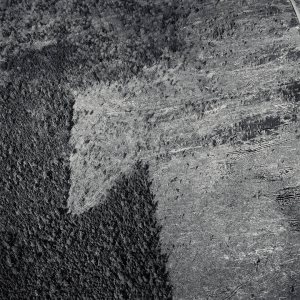
“The Forest 14,” a 1986 photograph by David Maisel, appears in the summer 2015 Bates College Museum of Art exhibition “Points of View.” Courtesy of the artist.
Empty storefronts, spaces between modest homes and vacant lots reflect the beauty, despair, yearning and disappointment that define our time in history in many places.
In his series The Forest, Maisel’s aerial photographs of environmentally impacted sites explore the aesthetics and politics of humanity’s radical interventions, framing issues of contemporary landscape with equal measures of documentation and metaphor.
Made in 1986, Maisel’s works in Points of View show the impact of clear-cutting in remote western Maine. Maisel reveals a profoundly wounded topography and the scale of mechanized activity often unseen from ground level due to “green strips” of trees left standing around lakes and rivers.
White’s photographs juxtapose imagery of native plant species against contemporary urban surroundings, and explore repeating patterns in plant growth at different levels of scale.
Using microscopic cameras at the Bates College Imaging and Computing Center, White has photographed a fungus called mycelium. Underground webs of fungus have a sophisticated symbiotic relationship with the root systems they inhabit, providing communications beneficial to the plants around them.
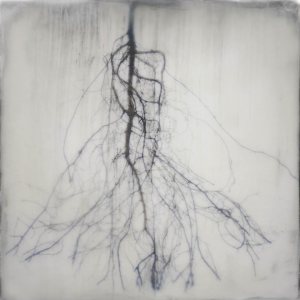
“Fir Roots,” a 2015 photograph by Shoshannah White, appears in the summer 2015 Bates College Museum of Art exhibition “Points of View.” Courtesy of the artist.
During the course of the exhibition, White will use a root-imaging scanner to create new imagery, for display in Points of View, from sites across the Bates campus.
Points of View is supported by a grant from the Davis Family Foundation, with curricular programming supported by the Bates Learning Associates Program. The exhibition is part of the Maine Photo Project, a statewide photography collaboration of more than 30 nonprofit cultural organizations in 2015, organized and supported by the institutions of the Maine Curators’ Forum.
The Maine Photo Project is funded in part by a grant from the Maine Arts Commission. Learn more: mainephotoproject.org.
Learn more about the summer’s other Bates museum exhibitions:
Read more about the other summer exhibitions at the Bates College Museum of Art:

